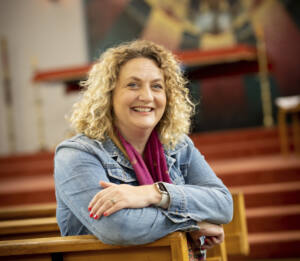
WelCom October 2024
Rebecca Taylor-Hunt, Director, Catholic Enquiry Centre
A recent enquirer said she felt uncomfortable confessing to her parish priest, who she knew well. The thought just made her cringe, especially when it had been such a long time since her last confession.
I have always been treated with immense kindness during the Sacrament of Reconciliation by my parish priest and never judgement. Reconciliation is a beautiful way of finding forgiveness, healing and peace. So, why do so many Catholics not go to confession? Or rather, they leave it so long that going becomes awkward. In fact, as Catholics, we are supposed to go to Reconciliation at least once a year, with Lent and Advent being the ideal time.
The idea of confessing our sins, those secrets we would never normally tell anyone, is an uncomfortable idea, but it doesn’t have to be an uncomfortable experience. It’s important to remember there is little the priest hasn’t heard before, and it is safe to be open during this sacred sacrament of healing. God already knows what is in our hearts.
You’ll find the times when Reconciliation is offered on the website or newsletter of your local parish. Once there, you’ll see a number of people sitting on a pew near the Confessional. Simply sit down with them and wait your turn. As I told the enquirer, it is also possible to visit a neighbouring parish for Reconciliation, and that’s completely okay. You can also contact your parish office to make an appointment to talk to a priest privately, especially if you think you may need some extra time.
As well as individual confession (Rite 1) there are two group or communal forms of reconciliation (Rites II and III), which often take place during Lent or Advent. These recognise the fact that even our most secret sins can cause harmful ripples in the community. In Rite II we gather as a community, prepare communally and then confess individually and receive absolution individually. It can be healing to mark the truth that we are a sinful people but also forgiven and redeemed community.
In all cases we need to prepare by examining our conscience; to see what we need to bring to God for forgiveness today? Praying for guidance is part of a good confession. If you are unsure, the priest will guide you through, and offer some good counsel before assigning a penance, which is often a prayer, and finally absolution. Afterwards, you will wonder why you were so anxious.
If you have any questions, please contact me at rebecca@catholicenquiry.nz